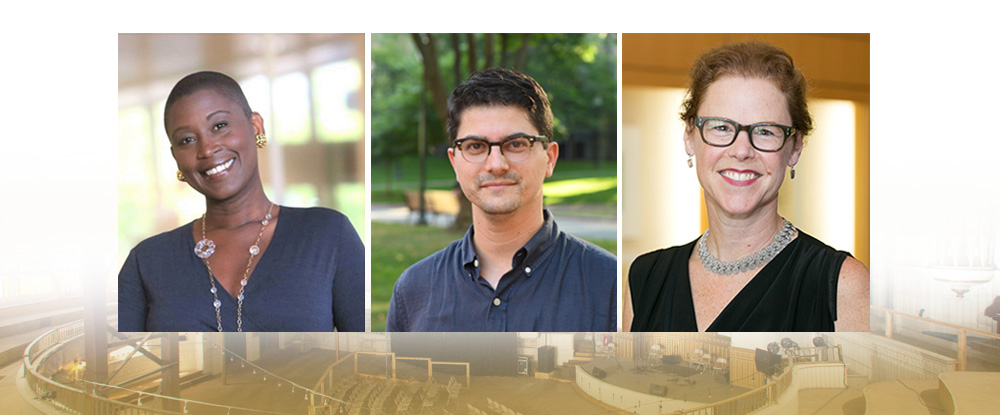During the academic year 2021-22, the Center for the Humanities and the Public Sphere continued its multi-year series entitled “Rethinking the Public Sphere,” turning its attention to the ways in which the humanities approach institutions at the intersections of law and urban planning. The series’ final talk focused on the institution of the university itself, in particular its graduate education. Each speaker in the series also offered a workshop for specialists at the University of Florida. All talks were conducted as webinars and all workshops took place virtually. During the pandemic, these workshops created connections across disciplinary boundaries and ways to engage in interdisciplinary conversations.
Michele Bratcher Goodwin (Chancellor’s Professor of Law; Director, Center for Biotechnology and Global Health Policy, University of California, Irvine) addressed how medical care and the law intersect in the criminalization of motherhood. She focused on the surveillance of the conduct of poor and minority women as mothers. In addition to a forceful and well-attended webinar, she discussed current legal developments that pertain to questions of pregnancy in her virtual workshop. UF faculty members from the Levin College of Law, the Department for Gender, Sexuality, and Women’s Studies, Department of Biology, Department of English, History, Department of Anthropology, African American Studies Program, and Department of Sociology engaged in passionate interdisciplinary conversation.
Paul M. Farber (Director of Monument Lab), presented on the National Monument Audit, produced by Monument Lab in partnership with the Mellon Foundation. Monument Lab’s research team spent a year collecting data on roughly half a million records of historic properties with a focus on 50,000 conventional monuments. Farber explained how the National Monument Audit provides insight into the dynamics that shape our monument landscape to pose questions about public memory. A group of scholars from UF’s Department of Classics, Historic Preservation Program, Department of History, School of Art and Art History, School of Architecture, Department of Urban and Regional Planning, and Museum Studies program met with Farber to discuss the ways in which institutions respond to such knowledge and imagine a different and more accurate representation of citizens in the public sphere.
Joy Connolly (President of the American Council of Learned Societies, ACLS) presented a lecture on the current challenges facing humanities and the myriad ways that universities can counter those trends. From scholarly collaboration and revision of graduate education to an embrace of public humanities, she mobilized a tour de force of concepts to strengthen and support the humanities in 21st-century institutions of higher education. After her lecture, Connolly led a workshop that focused on rethinking graduate education in the humanities. Members of the administration, graduate coordinators and chairs of humanities units, members of the graduate school, and graduate students were inspired by programs that the ACLS is undertaking to revamp graduate education and prepare humanities graduate students for an expansive job market.
The annual speaker series was co-sponsored by the Center for the Humanities and the Public Sphere (Rothman Endowment); College of Liberal Arts and Sciences; UF Research; African American Studies Program; Bob Graham Center for Public Service; Center for Arts, Migration, and Entrepreneurship; Department for Gender, Sexuality, and Women’s Studies; Cotton Club Museum and Cultural Center; Department of Biology; Department of Classics; Department of History; Department of Political Science; Department of Urban and Regional Planning; George A. Smathers Library; Levin College of Law; and the One Health Center of Excellence.
